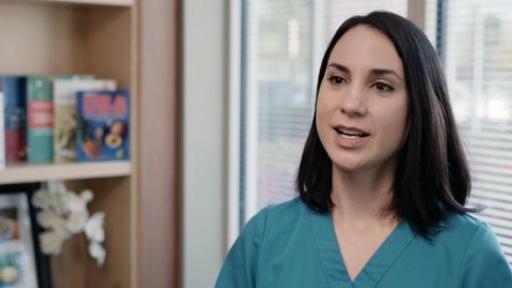National Survey Finds Losing Weight Is Harder Than Ever, In Part Because of Americans’ Busy, Modern Lifestyle
Over 70% of Americans don’t believe they can achieve their weight-loss goals
New York, NY - April 3, 2018 - Results from a new national survey released today indicate that our lifestyle exacerbates the challenge of trying to lose weight, making it more difficult than ever for adults to do so. Findings further suggest that adults who are trying to lose weight need a new approach that’s compatible with how we live today.
Specifically, most healthcare professionals and a majority of U.S. adults say losing weight is harder today than it was for previous generations because of the busy, modern lifestyle of Americans (77% of primary care physicians or PCPs, 81% of pharmacists, 62% U.S. adults). In fact, approximately seven in 10 healthcare professionals say it’s harder for Americans today to lose weight compared to just 10 years ago (69% of PCPs, 73% of pharmacists), and the vast majority believe Americans need to take a new approach to weight loss that fits with today’s modern lifestyle (89% of PCPs, 95% of pharmacists).
The survey was conducted online by The Harris Poll in October/November 2017 on behalf of global, life science group Zaluvida, the makers of I-REMOVE®, and included nearly 1,000 healthcare professionals (458 PCPs and 503 pharmacists), and more than 1,000 U.S. adults ages 18 and over.
“These findings highlight that while the way we live has changed dramatically over the past 10-20 years, our approach to weight loss has not evolved sufficiently to address those changes. The results underscore that we need to take a step back and evaluate what weight-loss strategies can best set people up for success given the demands of their daily lives,” said Frank Greenway, M.D., medical director and professor at Pennington Biomedical Research Center, Baton Rouge, LA.
Today’s Lifestyle is Less Active, and Driven by a Need for Convenience
Results from the survey suggest that today’s “on-demand”, screen-focused way of life is making Americans increasingly inactive. For example, the vast majority of healthcare professionals and U.S. adults say screen time (i.e., everyday use of mobile, tablet, and computer screens) keeps Americans from moving around today as much as we did in years past (95% of PCPs, 97% of pharmacists, 88% of U.S. adults), and that on-demand services such as meal delivery, ride sharing, streaming TV, online shopping, etc. are having the same effect (82% of PCPs, 84% of pharmacists, 80% of U.S. adults).
Survey findings also show that healthcare professionals are worried about a trend toward eating habits driven by lack of time, with most being concerned that Americans not taking the time to plan healthy meals will negatively impact their weight (98% of PCPs, 97% of pharmacists) and their family’s weight (97% of PCPs, 97% of pharmacists).
U.S. Adults Say They’re Caught in a Cycle of Weight-Loss Failure & Frustration
Approximately four in 10 U.S. adults are currently trying to lose weight (41%). Yet, perhaps in part because of the increased challenges associated with doing so, only about three in 10 of them are confident that they’ll be able to achieve their current weight-loss goals (29%). This may be because, for the majority, it is not their first attempt—approximately six in 10 say they are frustrated by repeated efforts to lose weight (59%), and, typically, they have attempted to lose weight five times in the past five years.
Similarly, healthcare professionals say only a small percentage of their patients are able to lose weight and keep it off. On average, PCPs say only 12% of their patients are able to do so, and pharmacists say that only 14.1% of the patients they counsel are able to lose weight. They also say that dieting can have unwanted consequences, and can even lead to weight gain. For example, 77% of PCPs and 84% of pharmacists say that after going through a period of extremely reduced calorie intake, a person’s body will prepare for the next “starvation” period and the person may gain weight in response, and 62% of PCPs and 72% of pharmacists say that drastically reducing the number of calories a person gets will slow down the body’s weight-loss process.
“Most of the people I counsel come to me after several failed attempts to sustainably lose weight—and often after a diet, they gain back more weight than they initially lost, and they often give up after ‘cheating’ on the diet,” said Brooke Schoonenberg, MS, RDN, LDN, Woman’s Hospital in Baton Rouge, LA. “For many, the time required for meal planning isn’t compatible with the demands of their careers and/or parenting. And, even when time is found, they can fall back into usual habits because the diet didn’t help them adopt changes that they could sustain over the long-term.”
Healthcare Professionals Cite Need for a Fresh Approach to Weight Loss & Novel Weight-Loss Options
Not only do healthcare professionals say that Americans need a new approach to weight loss, but they also point to several things that can help set people up for success. The number one factor they cite for successful weight loss given today’s busy, modern lifestyle is having a plan/method (89% of PCPs, 87% of pharmacists), that includes being sustainable (79% of PCPs, 69% of pharmacists), not being time consuming (56% of PCPs, 55% of pharmacists), not requiring sudden/major shifts to a person’s daily routine (54% of PCPs, 53% of pharmacists), and working quickly and safely (42% of PCPs, 36% of pharmacists).
Furthermore, healthcare professionals and U.S. adults agree that advice and support from a healthcare professional are important in order to successfully lose weight (93% of PCPs, 96% of pharmacists, 66% of U.S. adults). However, eight in 10 healthcare professionals (85% of PCPs, 84% of pharmacists) wish they had more weight-loss options to offer their patients who are overweight (i.e., not yet obese), and the majority say that having a weight-loss product/aid that fits into one’s lifestyle without unpleasant side effects would make it easier for their patients to lose weight (63% of PCPs, 60% of pharmacists).
Today, only 32% of U.S. adults who are currently trying or have ever tried to lose weight say that they discussed or developed a specific weight-loss plan with a healthcare professional. But, the vast majority of healthcare professionals think it is important to intervene and discuss weight loss/management with overweight patients before they become obese (96% of PCPs, 91% of pharmacists).
For more information about the survey results, people can visit www.weightlossfindings.com. For other information about healthy weight loss, people can visit www.i-remove.com.
About the National Survey ‘The Truth about Weight Loss’
The survey was conducted online within the United States by The Harris Poll on behalf of Zaluvida between October 13 and November 6, 2017. The consumer arm of the survey included a total of 1,005 U.S. adults ages 18+, of whom, 713 are currently trying (n=429) or have ever tried (n=284) to lose weight. The professional arm of the survey included 961 U.S. adults ages 18+ who are primary care physicians (n=458) or pharmacists (n=503). For complete research method, including weighting variables and subgroup sample sizes, please contact [email protected].
About Zaluvida
Zaluvida, the makers of I-REMOVE, is a global, integrated life science group that is pioneering therapies and technologies to tackle some of the most critical challenges in health care, including obesity, antimicrobial resistance, and greenhouse gas emissions. Zaluvida’s first-generation weight-management formula, Litramine®, was launched in Europe in 2006, and was soon awarded a Class II medical device certification. Litramine was the first weight-management formula in the world to achieve this designation. Litramine is sold in the U.S. as a dietary supplement.
Zaluvida is led from its corporate headquarters in Switzerland and the company has research and office facilities throughout Europe, North America, and Asia.
About InQpharm
InQpharm, a Zaluvida company, commercializes products from bioactive substances with pharma-grade efficacy. InQpharm tackles conditions essential to health by addressing unmet consumer needs and delivering value creation for customers.
About I-REMOVE
I-REMOVE, the number one-selling weight-loss aid in Europe, is now available in the U.S. Clinically tested to help people lose weight and maintain weight loss, it is shown to deliver up to three times more weight loss vs. dieting alone. I-REMOVE can help break the weight-loss/regain cycle by a dual action of fat binding for decreased fat absorption and increasing satiety, which together result in reduced calorie absorption, without undesirable side effects.1,2 In combination with a healthier lifestyle, I-REMOVE has been demonstrated to effectively help boost weight-loss efforts in people 18 years of age and older who are overweight or slightly obese.1
I-REMOVE can be easily incorporated into a busy schedule, but must be part of a healthy lifestyle, which includes eating healthier and moving more. This doesn’t mean going on drastic diets of less than 800 calories per day nor spending countless hours in the gym, it means making better eating decisions—even if the occasional slip up happens—and incorporating more movement into a typical day such as 30 minutes of walking. While diets have a beginning and an end, I-REMOVE is meant to help people adopt a healthier lifestyle that they can sustain over the long-term.
Press Contacts
|
Daniel de Carvalho Zaluvida Corporate AG Avenue Des Uttins 1 1180 Rolle Switzerland t. +41.21.822.2362 [email protected] |
Lynn Blenkhorn |
References: 1. Grube B, Chong PW, Lau KZ, Orzechowski HD. A natural fiber complex reduces body weight in the overweight and obese: a double-blind, randomized, placebo-controlled study. Obesity (Silver Spring). 2013;21:58-64. 2. Grube B, Chong PW, Alt F, Uebelhack R. Weight maintenance with Litramine (IQP-G-002AS): a 24-week double-blind, randomized, placebo-controlled study. J Obes. 2015;2015:1-6.








